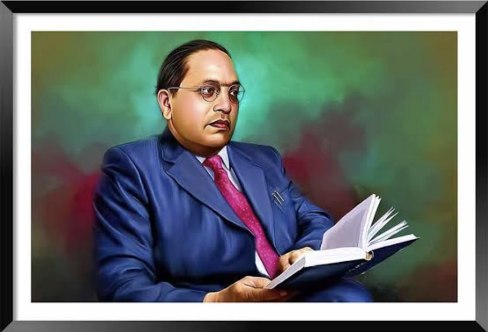
By Advocate Asim Khan
Dr. B.R. Ambedkar, the architect of the Indian Constitution, was more than a jurist and social reformer—he was a visionary who imagined an India rooted in equality, dignity, and justice. Decades after his passing, the relevance of Ambedkar remains not only intact but has arguably grown stronger. In a time where caste discrimination, economic inequality, and social injustices persist, the ideals he stood for continue to guide the conscience of the nation.
Ambedkar’s most profound contribution was his relentless fight against the caste system. Even today, despite legal safeguards, caste-based discrimination is far from extinct. Dalits and marginalized communities continue to face systemic oppression and social exclusion. In this context, Ambedkar's vision of a society based on liberty, equality, and fraternity becomes a living blueprint for reform. His words remind us that political democracy must be accompanied by social and economic democracy to be truly meaningful.
Furthermore, his advocacy for education as a tool of empowerment remains crucial. In the age of information and global competition, access to quality education for all, regardless of caste or class, is essential. Ambedkar believed that education was the primary means for social mobility and collective progress, a belief that resonates in contemporary struggles for educational equity.
Dr. Ambedkar was also a fierce defender of individual rights, especially for minorities and women. At a time when identity politics often polarizes society, his inclusive vision offers a path forward—where diversity is not just tolerated but celebrated. His emphasis on constitutional morality is a timely reminder that laws alone are not enough; a democratic spirit must be cultivated within society.
In today’s world of rising inequalities and fractured public discourse, we need an Ambedkar—not just in government or academia, but in every citizen. His ideas challenge us to build a nation where justice is not a privilege but a birthright. To invoke Ambedkar today is to recommit ourselves to the ideals of justice, equality, and dignity—for all, without exception.